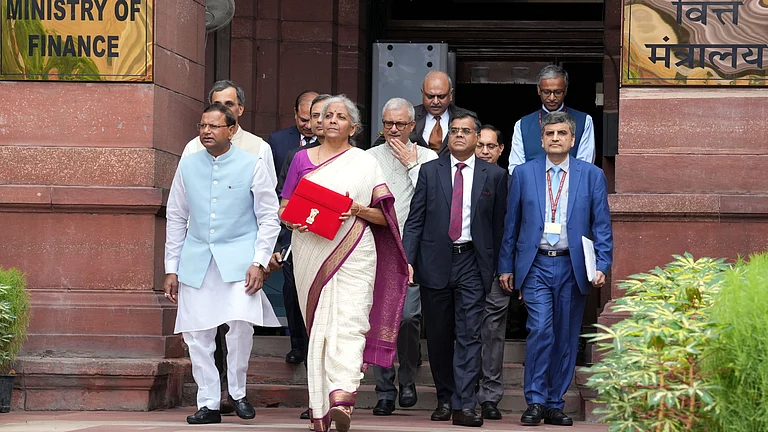Homeowners have placed high hopes for the Union Budget 2024 since the Interim Budget announced in February earlier this year did not provide any specific relief to taxpayers. Finance Minister Nirmala Sitharaman had waived some limited outstanding demands for the past years up to the financial year 2015-16, but the Interim Budget did not announce anything major.
Should the government choose to announce tax benefits for homeowners what could those be? Says S Sriram, Partner at Lakshmikumaran & Sridharan Attorneys, “Tax benefits to homeowners can either be direct benefits (tax deduction for housing loan interest, lesser tax on rental income) or indirect benefits (tax incentives to developers, improvement in infrastructure resulting in higher rental yield).”
Tax Benefits Changes for Homeownership Over The Years
‘Ownership’ of the property is a fundamental requirement to avail any tax benefits against the house/property. The government of India provides several tax benefits under Section 24 of the Income Tax Act for the income generated from the house property.
The main tax benefit of homeownership is that the imputed rental income homeowners get is not taxed.
Before the financial year 2019-20: Only one property owned by a taxpayer was treated as a self-occupied property while any other under the name of the individual was assumed to be ‘let-out’. Taxpayers made the choice of which property to choose as self-occupied.
FY 2019-20 onwards: Taxpayers can have 2 properties that can be referred to as ‘self-occupied’. A homeowner can claim his 2 properties as self-occupied and the remaining house as let out for Income tax purposes.
Section 80EE and Section 80EEA: In previous Budgets, the government had introduced additional deductions under Section 80EE and Section 80EEA for interest on home loans. These sections particularly cater to first-time homebuyers and are announced to boost affordable housing, allowing deductions of up to Rs 1.5 lakh.
What tax benefits do homeowners have?
Homeowners can deduct mortgage interest and property tax payments, as well as certain other expenses from their taxable income while filing their ITR. In addition to this, they may also exclude, up to a limit, the capital gain received from the sale of a home property.
Please Note: Budget 2023 had proposed that while computing capital gains, the deduction claimed against home loan interest cannot be part of the acquisition cost.
Joint Ownership: In order to claim tax benefits for a home loan, you must be an owner (or co-owner) of the property. Please remember that you may take the loan jointly, but unless you are an owner/co-owner of the property, you may not be entitled to claim the tax benefits.
Moreover, income from letting out vacant land is taxable under the provision of “Income from Other Sources” or “Profits or gains from business or profession”.
Note: Under-construction properties do not come under the ambit of tax benefits. Therefore, tax exemptions/deductions on a house property can only be claimed, in a given financial year - in which construction of the property is marked as complete.
Affordable Housing Push
The Modi government introduced Pradhan Mantri Awas Yojana (PMAY) in 2015 to boost tax benefits for affordable housing. This scheme offers interest subsidies on home loans. All houses under the PMAY-U consist of basic amenities, such as water supply, kitchen, electricity, and toilet.
In the Budget 2023, the outlay for the Pradhan Mantri Awas Yojana was enhanced by 66 per cent to over Rs.79,000 crore. Homeowners anticipate that the PMAY scheme will return in Budget 2024 with some improved features while the industry at large hopes for an increase in housing loan subsidy under the scheme from Rs 2.67 lakh to Rs 3 lakh.
Homeowners Wishlist For Budget 2024
“In the recent past, tax deductions for interest paid on housing loans have increased. The scope of notional tax on self-occupied houses has been restricted. Now a house owner can occupy two houses for himself and his family, without being subject to any tax liability,” says Sriram.
However, where a house is sold and the proceeds therefrom are reinvested in another property, tax exemption is restricted to the extent reinvested in 'one' house only. No exemption would be available if the new house is purchased outside India.
“There is a larger ask from home buyers - to increase the limit on interest expenses, to improve deduction for loan principal repayment, etc.,” Sriram states.
“Tax incentives provided to flat developers and infrastructure developers, more particularly in suburban areas of developed cities, saw many new housing communities sprouting outside traditional city limits,” Sriram informs.
“Raising the deduction limit for interest payments on home loans from the current Rs 2 lakh to Rs 5 lakh would significantly boost housing demand,” states Nishka Choraria, Vice President of Marketing at Crest Ventures Limited. She further suggests that reducing GST on under-construction properties and adjusting raw material pricing are also crucial steps that can make homeownership more affordable for a larger section of the population.
“Reducing the maximum tax rate of 30 per cent could also significantly enhance individual purchasing power, making it easier for more people to invest in real estate,” she says.
Homeowners also hope that the government will reintroduce benefits under Section 80EEA to claim a deduction of home loan interests up to 31 March 2026.































